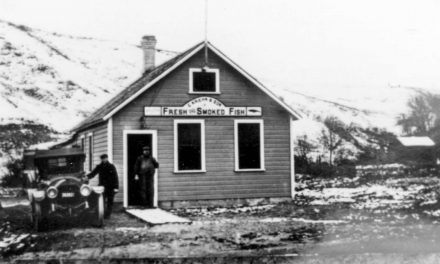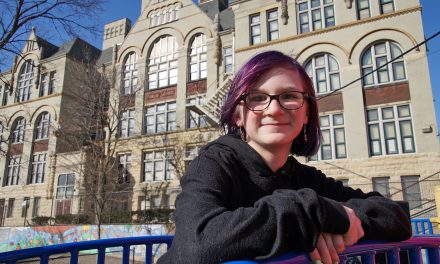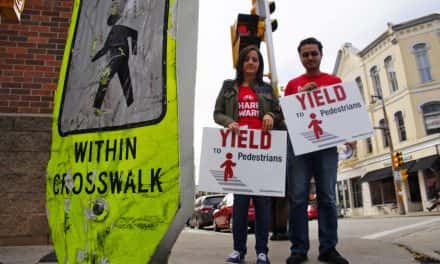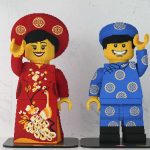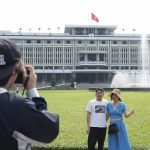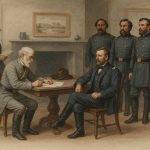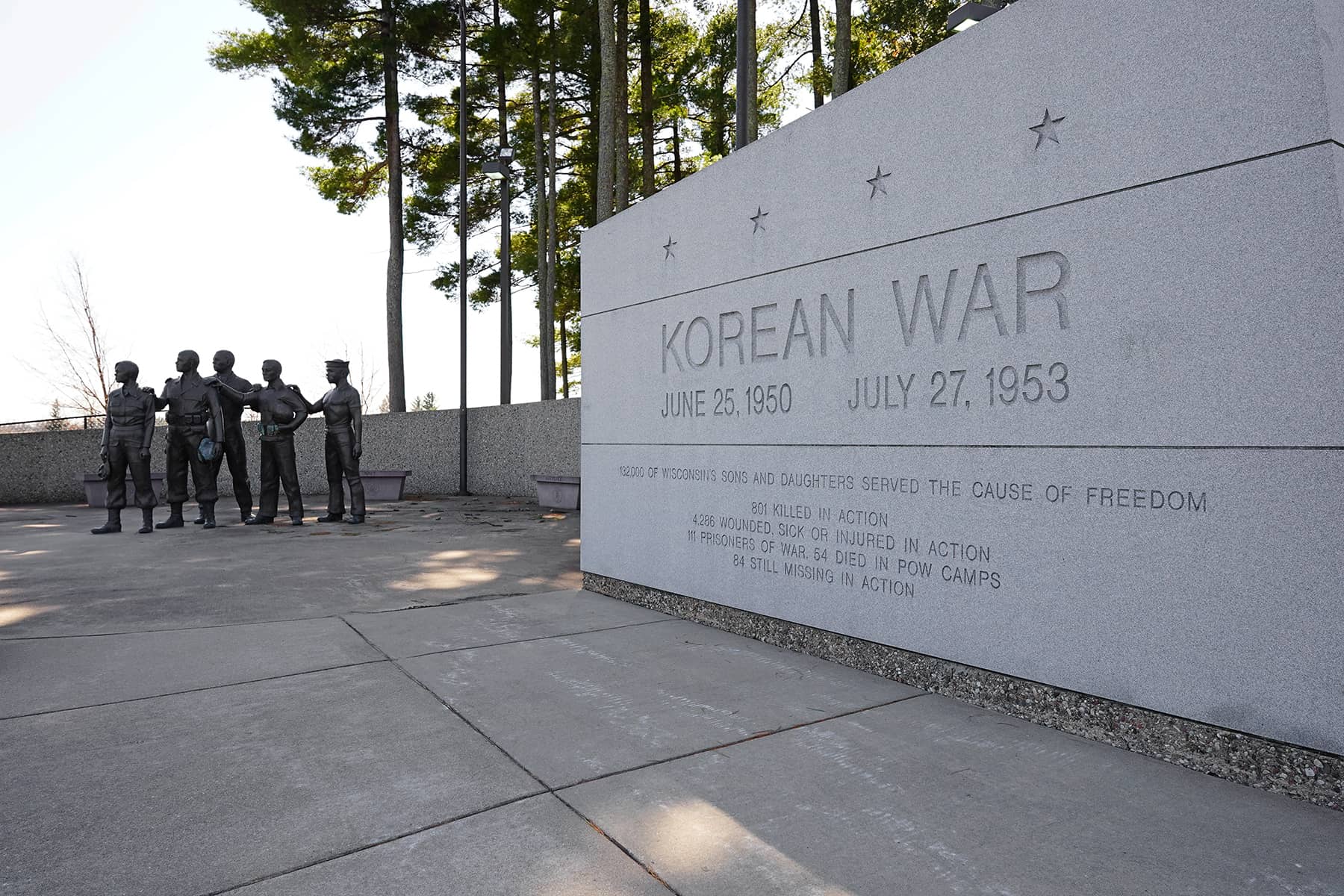
Surrounded by the waters of Lake Pacawa in Plover, Wisconsin is the home of the state’s Korean War Veterans Memorial, a tribute to the bravery and sacrifice of a generation of veterans from “The Forgotten War.”
The memorial was designed to honor those who fought, died, and remain missing in action on the Korean Peninsula, while also serving as a living reminder of their legacy. The inspiration for the memorial originated in the late 1980s, when a group of Korean War veterans from Wisconsin sought to create a lasting tribute to their fallen comrades.
Recognizing the sacrifices made during what history books often referred to as “America’s Forgotten War,” they aimed to ensure that those sacrifices would be remembered by forming the Korean War Veterans Memorial Association of Wisconsin (KWVMAW).
In 1990, the Village of Plover offered a 2.5-acre island in Lake Pacawa as the site for the memorial. The offer included a 99-year lease at no cost, underscoring the community’s commitment to honoring its veterans. The location, surrounded by the scenic Worzella Pines Park, provided a tranquil and fitting backdrop for the memorial.
Groundbreaking for the memorial took place on May 22, 1993. With $300,000 in matching funds from the Wisconsin Legislature and substantial community donations, the project quickly took shape. By 1997, the memorial was completed, featuring full-sized bronze statues, flagpoles, and a massive granite wall. The dedication ceremony marked the culmination of years of planning, fundraising, and community effort.
The memorial was designed to tell shared stories from different experiences. It features five life-sized statues representing the branches of the military that played critical roles during the Korean War.
In the front of the group stands a Nurse, symbolizing the dedication, compassion, and bravery of Medics who ensured many returned home safely. Behind the Nurse are Army and Marine Infantrymen, representing the relentless courage of those who carried the brunt of battle. Following them is an Air Force Pilot and a Sailor, whose crucial support was indispensable for victory.
The statues face east, a nod to Korea’s location in the Far East. United in their stance, the five figures symbolize the brotherhood forged in combat. Notably, there are no weapons depicted in the Memorial, underscoring the enduring wish of veterans for peace.
Fought from June 25, 1950, to July 27, 1953, a coalition of 21 United Nations member countries contributed to the defense of South Korea. A staggering 1,789,000 Americans served in the Korean War, enduring immense sacrifices with 36,574 lives lost and 103,284 wounded. Among them, 8,176 were taken as POWs or declared MIA, with 7,428 still unaccounted for.
Despite significant contributions in the service of their nation, less than half of the U.S. states have officially designated memorials to honor Korean War veterans. Wisconsin is only one of 16, excluding highways and bridges dedicated with a memorial name.
By contrast, even with Australia’s lesser role in the conflict it has more memorials by one, with a total of 17. The disparity highlights a tragic gap in the recognition of those who served in the often-overlooked war.
The significance of the state’s Korean War Veterans Memorial extends beyond Lake Pacawa Park, reaching across the state through the Korean War Veterans Memorial Highway. Designated by the Wisconsin Legislature, U.S. Highway 51, which runs from the Illinois border to the Michigan border, has been named in honor of the Korean War veterans.
The highway serves as a living memorial to remind travelers of the sacrifices and contributions made by the state’s veterans. The designation was part of the 1987 Wisconsin Act 117, which aimed to honor all Wisconsin veterans of the Korean War, both living and deceased. The highway’s route, which runs concurrently with Interstate 39 in many parts, connects various communities across Wisconsin.
One of several state markers that recognize the Korean War is located along U.S. Highway 51 in Rest Area 82 near Westfield, Wisconsin, The inscription reads:
On June 25, 1950, Communist North Korea invaded the Republic of Korea. Backed by Soviet Russia, the North Koreans quickly overran most of the peninsula. South Korea appealed to the United States for assistance, and President Harry Truman immediately ordered General Douglas MacArthur to commit U.S. troops. The United Nations condemned North Korean aggression and solicited military aid from member nations.
Following a series of defeats, General MacArthur launched a daring amphibious landing at Inchon in September 1950 and advanced northward to the Yalu River. Then Communist China massively intervened, and the Allied forces retreated southward. The fighting eventually stabilized along the 38th Parallel, the original boundary between North and South Korea. After a long, bloody stalemate and protracted negotiations, an armistice was signed on July 27, 1953.
The Korean War – or “police action” as it was called – cost 33,629 Americans killed in action and another 103,000 wounded. More than 132,000 Wisconsinites were involved in this “forgotten war,” of whom 801 were killed in action and 4,286 were wounded. Another 111 were captured, and 84 remain listed as missing in action.
The Wisconsin Korean War Veterans Memorial is far from a static monument, it is a living tribute to the sacrifices made by Wisconsin’s service members. Each year, the memorial site hosts a homecoming program, organized by the Greater Plover VFW Post 10262. The event includes an Honor Guard and Firing Party, which brings veterans of all wars, families, and community members together in remembrance.
Even with community support, the memorial has faced challenges over the years. Structural issues arose in 2004 due to drought conditions, which necessitated significant repairs. The restoration efforts were funded through a combination of state appropriations, village contributions, and support from veteran groups. In 2009, the Village of Plover formally took over the maintenance of the memorial, ensuring its preservation for future generations through ongoing community support and donations.
Today, the Wisconsin Korean War Veterans Memorial remains a focal point across the state, and in Lake Pacawa Park. Its amenities include picnic areas, walking trails, and fishing spots, with the park providing a serene environment for visitors. The surroundings of nature also complement the memorial’s location as a place for reflection and remembrance, drawing visitors from all over who wish to offer a silent tribute to the fallen.
Public interest in the memorial remains strong, with the site often providing educational programs for young students in the hope that “America’s Forgotten War” will be remembered in personal stories for decades to come.
- Exploring Korea: Stories from Milwaukee to the DMZ and across a divided peninsula
- A pawn of history: How the Great Power struggle to control Korea set the stage for its civil war
- Names for Korea: The evolution of English words used for its identity from Gojoseon to Daehan Minguk
- SeonJoo So Oh: Living her dream of creating a "folded paper" bridge between Milwaukee and Korean culture
- A Cultural Bridge: Why Milwaukee needs to invest in a Museum that celebrates Korean art and history
- Korean diplomat joins Milwaukee's Korean American community in celebration of 79th Liberation Day
- John T. Chisholm: Standing guard along the volatile Korean DMZ at the end of the Cold War
- Most Dangerous Game: The golf course where U.S. soldiers play surrounded by North Korean snipers
- Triumph and Tragedy: How the 1988 Seoul Olympics became a battleground for Cold War politics
- Dan Odya: The challenges of serving at the Korean Demilitarized Zone during the Vietnam War
- The Korean Demilitarized Zone: A border between peace and war that also cuts across hearts and history
- The Korean DMZ Conflict: A forgotten "Second Chapter" of America's "Forgotten War"
- Dick Cavalco: A life shaped by service but also silence for 65 years about the Korean War
- Overshadowed by conflict: Why the Korean War still struggles for recognition and remembrance
- Wisconsin's Korean War Memorial stands as a timeless tribute to a generation of "forgotten" veterans
- Glenn Dohrmann: The extraordinary journey from an orphaned farm boy to a highly decorated hero
- The fight for Hill 266: Glenn Dohrmann recalls one of the Korean War's most fierce battles
- Frozen in time: Rare photos from a side of the Korean War that most families in Milwaukee never saw
- Jessica Boling: The emotional journey from an American adoption to reclaiming her Korean identity
- A deportation story: When South Korea was forced to confront its adoption industry's history of abuse
- South Korea faces severe population decline amid growing burdens on marriage and parenthood
- Emma Daisy Gertel: Why finding comfort with the "in-between space" as a Korean adoptee is a superpower
- The Soul of Seoul: A photographic look at the dynamic streets and urban layers of a megacity
- The Creation of Hangul: A linguistic masterpiece designed by King Sejong to increase Korean literacy
- Rick Wood: Veteran Milwaukee photojournalist reflects on his rare trip to reclusive North Korea
- Dynastic Rule: Personality cult of Kim Jong Un expands as North Koreans wear his pins to show total loyalty
- South Korea formalizes nuclear deterrent strategy with U.S. as North Korea aims to boost atomic arsenal
- Tea with Jin: A rare conversation with a North Korean defector living a happier life in Seoul
- Journalism and Statecraft: Why it is complicated for foreign press to interview a North Korean defector
- Inside North Korea’s Isolation: A decade of images show rare views of life around Pyongyang
- Karyn Althoff Roelke: How Honor Flights remind Korean War veterans that they are not forgotten
- Letters from North Korea: How Milwaukee County Historical Society preserves stories from war veterans
- A Cold War Secret: Graves discovered of Russian pilots who flew MiG jets for North Korea during Korean War
- Heechang Kang: How a Korean American pastor balances tradition and integration at church
- Faith and Heritage: A Pew Research Center's perspective on Korean American Christians in Milwaukee
- Landmark legal verdict by South Korea's top court opens the door to some rights for same-sex couples
- Kenny Yoo: How the adversities of dyslexia and the war in Afghanistan fueled his success as a photojournalist
- Walking between two worlds: The complex dynamics of code-switching among Korean Americans
- A look back at Kamala Harris in South Korea as U.S. looks ahead to more provocations by North Korea
- Jason S. Yi: Feeling at peace with the duality of being both an American and a Korean in Milwaukee
- The Zainichi experience: Second season of “Pachinko” examines the hardships of ethnic Koreans in Japan
- Shadows of History: South Korea's lingering struggle for justice over "Comfort Women"
- Christopher Michael Doll: An unexpected life in South Korea and its cross-cultural intersections
- Korea in 1895: How UW-Milwaukee's AGSL protects the historic treasures of Kim Jeong-ho and George C. Foulk
- "Ink. Brush. Paper." Exhibit: Korean Sumukhwa art highlights women’s empowerment in Milwaukee
- Christopher Wing: The cultural bonds between Milwaukee and Changwon built by brewing beer
- Halloween Crowd Crush: A solemn remembrance of the Itaewon tragedy after two years of mourning
- Forgotten Victims: How panic and paranoia led to a massacre of refugees at the No Gun Ri Bridge
- Kyoung Ae Cho: How embracing Korean heritage and uniting cultures started with her own name
- Complexities of Identity: When being from North Korea does not mean being North Korean
- A fragile peace: Tensions simmer at DMZ as North Korean soldiers cross into the South multiple times
- Byung-Il Choi: A lifelong dedication to medicine began with the kindness of U.S. soldiers to a child of war
- Restoring Harmony: South Korea's long search to reclaim its identity from Japanese occupation
- Sado gold mine gains UNESCO status after Tokyo pledges to exhibit WWII trauma of Korean laborers
- The Heartbeat of K-Pop: How Tina Melk's passion for Korean music inspired a utopia for others to share
- K-pop Revolution: The Korean cultural phenomenon that captivated a growing audience in Milwaukee
- Artifacts from BTS and LE SSERAFIM featured at Grammy Museum exhibit put K-pop fashion in the spotlight
- Hyunjoo Han: The unconventional path from a Korean village to Milwaukee’s multicultural landscape
- The Battle of Restraint: How nuclear weapons almost redefined warfare on the Korean peninsula
- Rejection of peace: Why North Korea's increasing hostility to the South was inevitable
- WonWoo Chung: Navigating life, faith, and identity between cultures in Milwaukee and Seoul
- Korean Landmarks: A visual tour of heritage sites from the Silla and Joseon Dynasties
- South Korea’s Digital Nomad Visa offers a global gateway for Milwaukee’s young professionals
- Forgotten Gando: Why the autonomous Korean territory within China remains a footnote in history
- A game of maps: How China prepared to steal Korean history to prevent reunification
- From Taiwan to Korea: When Mao Zedong shifted China’s priority amid Soviet and American pressures
- Hoyoon Min: Putting his future on hold in Milwaukee to serve in his homeland's military
- A long journey home: Robert P. Raess laid to rest in Wisconsin after being MIA in Korean War for 70 years
- Existential threats: A cost of living in Seoul comes with being in range of North Korea's artillery
- Jinseon Kim: A Seoulite's creative adventure recording the city’s legacy and allure through art
- A subway journey: Exploring Euljiro in illustrations and by foot on Line 2 with artist Jinseon Kim
- Seoul Searching: Revisiting the first film to explore the experiences of Korean adoptees and diaspora















